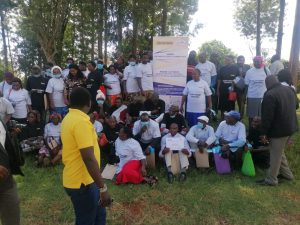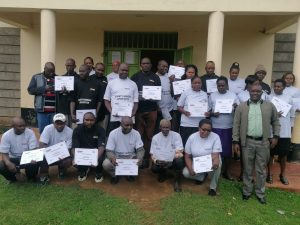Adapting to Universal Health Coverage: Lessons from the UHC Pilot Program
Introduction
The Kenyan government’s 2018 declaration of Universal Health Coverage (UHC) as a key agenda item has significantly impacted health service delivery. This article explores the challenges and adaptations of the Community-Based Health Insurance (CBHI) project in Nyeri County, one of the pilot areas for UHC implementation.
UHC Pilot Program Overview
Pilot Implementation: Nyeri County was selected as a pilot site for UHC, providing free health services at public hospitals. This initiative aimed to improve access to healthcare but faced challenges due to high demand and inadequate infrastructure.
Challenges Faced: The influx of citizens from neighboring counties created congestion, leading to difficulties in delivering the expected results. By early 2020, the pilot ended, leaving a significant portion of the population disillusioned and abandoning their CBHI/NHIF covers.
Current Focus and Strategies
Building on past experiences, the CBHI project has shifted focus to:
1. Lobbying and Advocacy: Enhancing advocacy efforts to sustain the UHC agenda and ensure the effective delivery of health services.
2. Citizen-Centered Approach: Emphasizing citizen involvement in county health planning and budgeting to improve governance and service quality.
3. Monitoring and Evaluation: Ensuring that the UHC promise is upheld and addressing gaps in service delivery.
Benefits of Citizen Involvement:
1. Enhanced Transparency: Improves governance and accountability in health service delivery.
2. Effective Resource Use: Optimizes health planning and budgeting processes.
3. Sustainable Health Solutions: Supports the long-term success of UHC initiatives.
Conclusion
The transition to Universal Health Coverage presents both opportunities and challenges. By leveraging community engagement and advocacy, the CBHI project aims to address these challenges and contribute to a sustainable and effective health system.

